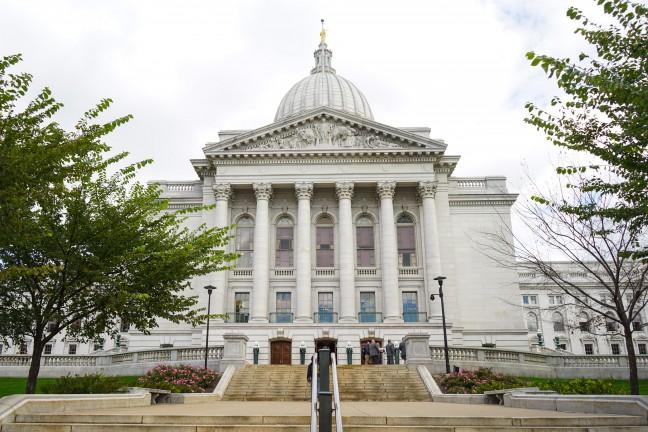A bill eliminating John Doe investigations — of which Gov. Scott Walker was the subject of — is headed to his desk.
The state Assembly passed legislation Tuesday with a 60-36 vote on party lines that would eliminate such investigations.
John Doe investigations are secret probes in which the names of persons accused of committing crimes are kept private until the investigation is completed, Barry Burden, a political science professor at University of Wisconsin, explained.
Wisconsin is the only state to not yet repeal John Doe laws, the bill’s author, Rep. David Craig, R-Big Bend said in the Assembly session. He said his bill puts Wisconsin on par with 49 other states.
Democrat critics of the bill said it exempts politicians from investigation under such legislation, some even referring to it as the “corrupt politicians’ protection act.”
Craig insists on the opposite.
“The bill makes no distinction based on someone’s job, or what type of person they are, or anything of that nature,” Craig said in an Assembly hearing Tuesday.
Craig said the bill mandates that John Doe investigations only be used in cases where secrecy is absolutely necessary. Such cases would include class A to D felonies, racketeering, drug crimes and other crimes of violent nature in which it is important for identities to not be compromised.
The bill does not, however, include crimes politicians typically commit, such as misconduct in office, bribery and fraud, Rep. Evan Goyke, D-Milwaukee, said.
He said this stops prosecutors from using the John Doe strategy to investigate those crimes.
Rep. Andy Jorgensen, D-Milton, said the real intent of the bill is to prevent corrupt politicians from being prosecuted.
“It’s clear, Republicans are making Wisconsin open for corruption,” Jorgensen said. “Their bill is simple — they want to exempt themselves from the law.”
In lieu of John Doe investigations, Burden said this bill forces prosecutors to approach the state for funding for their investigations. Burden said this creates a conflict of interest since politicians could choose not to fund certain investigations.
Burden said John Doe investigations seek to prevent reputations of politicians from being tarnished during investigations where allegations may turn out to be false.
Robert Kraig, executive director of Citizen Action of Wisconsin, said the secrecy of John Doe investigations also prevents media frenzies that make it harder for prosecutors to fully investigate a case.
Rep. Scott Allen, R-Waukesha, said politicians should not have to fear being targeted by people who disagree with their policies, insinuating that politicians are only targeted in investigations because prosecutors disagree with their partisan agendas.
“The mere idea that someone can be persecuted for their political ideology is fundamentally wrong, and it’s fundamentally opposed to the American world view,” Allen said. “This is about free speech.”
Kraig said Republicans are using the First Amendment to rationalize an emotionally-charged law change.
Kraig said what this bill is really about is Republicans being upset about the John Doe investigation into Gov. Scott Walker. Kraig said the investigation into Walker was not a “witch hunt,” but rather a completely warranted investigation based on serious political allegations.
“This seems to be literally a rewriting of the law to prevent future investigations into Gov. Walker,” Kraig said. “That is no way to make law.”
Kraig said instead of circumventing the political process and taking advantage of a Republican majority in the Assembly, lawmakers should use a joint council process to investigate law reforms in a professional, nonpartisan way.
During the 2001 caucus scandal, the John Doe investigative strategies were essential in prosecuting both Democratic and Republican officials participating in illegal campaign work while on the job, Burden said. Getting rid of John Doe is getting rid of an important tool for prosecutors, he added.


